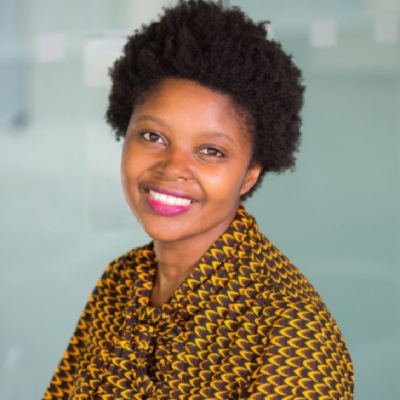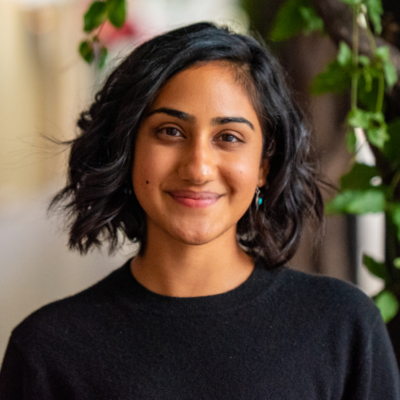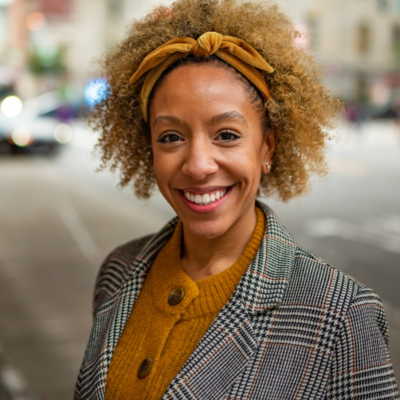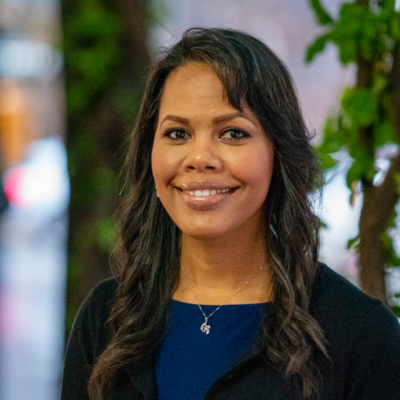Our society faces deep challenges in terms of equity. Historically rooted issues in terms of access to resources, democratic representation, and discrimination unfortunately still affect our world, and the technology and policy spheres are no exception. How might we harness, design, and think about how to use technology to achieve policy changes that would begin to mitigate these effects?
Join Aspen Tech Policy Hub Fellows as they showcase their projects focused on Seeding Success: Equity, Technology and Policy. Following the presentations, we are thrilled to be joined by Mutale Nkonde, Founder, AI For the People, who will give further remarks on the projects and on the intersection of technology, policy and equity. The projects presented are:
Edtech Equity: Black and brown students in American public schools battle discrimination in many forms: higher rates of suspension, less advanced academic tracks, and a lack of cultural responsiveness from predominantly white teachers. Edtech products that use AI and machine learning can amplify already existing biases and introduce new ones. Nidhi Hebbar and Madison Jacobs joined forces to give companies, schools and parents new ways to uncover and mitigate racial bias in the design and development of edtech products.
Closing the Tech Funding Gap: Current technology startup capitalization policies put under-represented tech startup founders at a disadvantage; we forgo an estimated 9 million jobs and $300 billion in collective national income due to discrimination against minority founders. At the same time, regulations limit over 90 percent of prospective investors from serving as “accredited investors” and supporting these founders. Mariah Lichtenstern led a project to address systemic issues in investor criteria, and to propose strategies to close the tech funding gap.
People Powered Policy: Due to a family emergency, Amy Wilson will present this project at our next demo day on August 5.
We were joined by:
 Mutale Nkonde is the founding CEO of AI For the People (AFP) a non profit communications agency. AFP’s mission is to eliminate the under-representation of black professionals in the American technology sector by 2030. Prior to this Nkonde worked in AI Governance. During that time she was part of the team that introduced the Algorithmic and Deep Fakes Algorithmic Acts, as well as the No Biometric Barriers to Housing Act to the US House of Representatives, which has been used as the basis for the 2020 The Facial Recognition and Biometric Technology Moratorium Act. She started her career as a broadcast journalist and produced documentaries for the BBC, CNN, & ABC. She now also writes widely on race and tech, as well speaking at conferences across the world. She is currently a fellow at the Digital Civil Society Lab at Stanford University, a member of the Tik Tok US, Content Moderation Advisory Council, key constituent 3C UN Roundtable for AI, and an affiliate the Berkman Klein Center of Internet and Society at Harvard University.
Mutale Nkonde is the founding CEO of AI For the People (AFP) a non profit communications agency. AFP’s mission is to eliminate the under-representation of black professionals in the American technology sector by 2030. Prior to this Nkonde worked in AI Governance. During that time she was part of the team that introduced the Algorithmic and Deep Fakes Algorithmic Acts, as well as the No Biometric Barriers to Housing Act to the US House of Representatives, which has been used as the basis for the 2020 The Facial Recognition and Biometric Technology Moratorium Act. She started her career as a broadcast journalist and produced documentaries for the BBC, CNN, & ABC. She now also writes widely on race and tech, as well speaking at conferences across the world. She is currently a fellow at the Digital Civil Society Lab at Stanford University, a member of the Tik Tok US, Content Moderation Advisory Council, key constituent 3C UN Roundtable for AI, and an affiliate the Berkman Klein Center of Internet and Society at Harvard University.
 Nidhi Hebbar is an ed-technologist passionate about equitable, learner-centered redesign and spent the last six months working with innovative learning communities in India and Kenya. Most recently a global product lead for Apple in education, Nidhi builds technologies to enable creative and relevant modes of learning. While at Columbia University, Nidhi co-founded Youth for Debate, a non-profit that encourages students in low-income communities to find their voice through debate and public speaking. In her free time, Nidhi travels the world to challenge her assumptions and learn how different communities dream of redesigning learning.
Nidhi Hebbar is an ed-technologist passionate about equitable, learner-centered redesign and spent the last six months working with innovative learning communities in India and Kenya. Most recently a global product lead for Apple in education, Nidhi builds technologies to enable creative and relevant modes of learning. While at Columbia University, Nidhi co-founded Youth for Debate, a non-profit that encourages students in low-income communities to find their voice through debate and public speaking. In her free time, Nidhi travels the world to challenge her assumptions and learn how different communities dream of redesigning learning.
 Madison Jacobs is a Senior Communications Manager at the Public Rights Project. Previously, she was Editor-in-Chief at Google for Startups. She previously worked on product marketing initiatives at Apigee, which was acquired by Google Cloud in 2016, as well as several other startups throughout the Bay Area. She has a journalism degree from The Walter Cronkite School of Journalism and Mass Communication at Arizona State University. Madison has a deep love for mentoring startups and spends time in her personal and professional life working to help Black founders get the resources they need to build and scale their companies.
Madison Jacobs is a Senior Communications Manager at the Public Rights Project. Previously, she was Editor-in-Chief at Google for Startups. She previously worked on product marketing initiatives at Apigee, which was acquired by Google Cloud in 2016, as well as several other startups throughout the Bay Area. She has a journalism degree from The Walter Cronkite School of Journalism and Mass Communication at Arizona State University. Madison has a deep love for mentoring startups and spends time in her personal and professional life working to help Black founders get the resources they need to build and scale their companies.
 At the intersection of technology, entertainment, and venture capital, Mariah Lichtenstern accelerates social, economic, and environmental impact through entrepreneurship. Mariah is the Founding Partner of DiverseCity Ventures and Managing Director of the Founder Institute, Sacramento Chapter. She is a member of UCLA Ventures, and serves as an advisor for CalSEED CleanTech Fund, Berkeley SkyDeck, and Village Capital Finance Forward US 2019. An alumna of UC Berkeley, USC, and UCLA, she is passionate about solving the wealth, wage, and funding gaps by building equitable bridges between those with privilege and those with valuable, but underutilized perspectives.
At the intersection of technology, entertainment, and venture capital, Mariah Lichtenstern accelerates social, economic, and environmental impact through entrepreneurship. Mariah is the Founding Partner of DiverseCity Ventures and Managing Director of the Founder Institute, Sacramento Chapter. She is a member of UCLA Ventures, and serves as an advisor for CalSEED CleanTech Fund, Berkeley SkyDeck, and Village Capital Finance Forward US 2019. An alumna of UC Berkeley, USC, and UCLA, she is passionate about solving the wealth, wage, and funding gaps by building equitable bridges between those with privilege and those with valuable, but underutilized perspectives.
This conversation is part of the Aspen Tech Policy Hub’s Demo Day Video Series. Please visit our website to learn more about our series and RSVP for other events.

